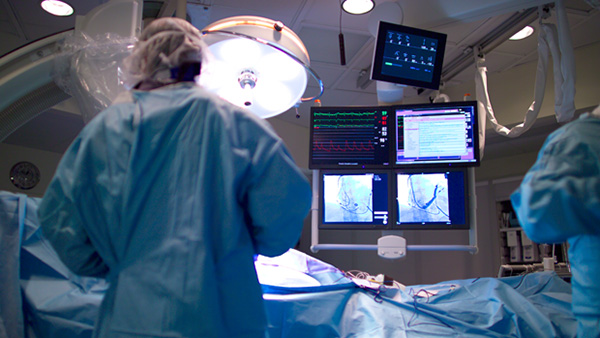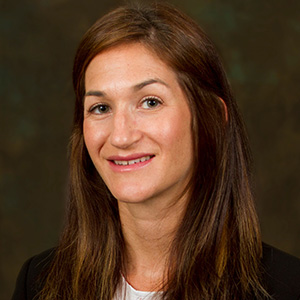Feature | Why I Chose a Career in Electrophysiology

Life is a series of choices. Each choice brings you to a fork in the road, and that subsequent choice leads you to the next one. Along the way, there will be nudges from family, friends, mentors and all the other subconscious inputs that go into decision-making.
These choices seem to describe my path to a career in electrophysiology – because I certainly did not start out with that intention.
I had concerns about America's medical care that went beyond the single doctor-patient interaction in the exam room, and so I decided to complete my Master of Public Health with a concentration in health policy and management during medical school.
I was excited to pursue a career in public health with a focus in health economics when I started my residency in internal medicine in a primary care track. However, during an inpatient cardiology rotation in my third year of residency, I realized the specialty that most interested me was cardiology.
The only journal articles I could read in completion were those focused on cardiology. I vividly remember treating a patient with Wolff-Parkinson-White syndrome and staying up all night reading about antidromic vs. orthodromic reentry tachycardia so that I could teach my co-residents the next morning, but also so that I could understand the circuit.
While I still think that our health care system is broken in many ways and am constantly frustrated by the ways in which society fails to take the necessary measures to ensure a healthy population, my personal passion in the practice of medicine took a different turn.
This turn brought me back to Emory University in Atlanta for general cardiology fellowship. I did not have a solid plan for where this new road would end, but I had vague ideas of reading echocardiograms for many years to come. As general fellows, we rotated through the electrophysiology service, and I once again found myself awash in the mysteries of the conduction system, yearning to learn more.
However, the procedural aspect of the field concerned me: how would I personally deal with complications? What risks would I be taking with radiation exposure and the weight of daily lead use?
Furthermore, as a woman in both cardiology and a procedural subspecialty, it was challenging to imagine myself in the position of electrophysiologist. For the most part, the attendings I learned from and physicians I saw speak at national meetings did not look like me.
A nudge came from the electrophysiology program director, who called to ask me if I was going to apply to fellowship. In all honesty, if he had not called, I would probably have let the opportunity pass me by. His call, along with the support and encouragement from those around me, led me to the next path of electrophysiology fellowship.
I am fortunate to be able to remain on staff at Emory as I look toward completing my fellowship soon. I can honestly say I love what I do. I may have been able to contribute to medicine in other ways – and perhaps in ways that could have improved the health of a larger population. But have found a source of excitement and stimulation in the practice of medicine that I hope will sustain me throughout my career.
I still worry about radiation exposure and procedural complications and still have to consciously remind myself that I, too, look like an electrophysiologist. However, I am grateful for a network of women in cardiology with whom I can share my experiences and gather inspiration.
Throughout my long training career, I have worked hard, kept my eyes open to opportunities and tried to follow my instinct. I am also fortunate to have a wonderful husband who is a true partner. He primarily takes care of our two young boys and provides an amazing degree of support as the demands of medicine take me to the hospital early mornings, late nights and weekends. I am also grateful that I live near my parents, who help in ways I feel I will never be able to repay.
Perhaps life is a series of choices that lead to the same inevitable point for any given person. One will never know.
This article is part of the ACC WIC Section's #ChooseCardiology series, where women in residency, fellowship and early career are encouraged to share why they would choose cardiology again.

This article is authored by Stacy Westerman, MPH, MD, cardiologist at Emory University School of Medicine in Atlanta, GA.

